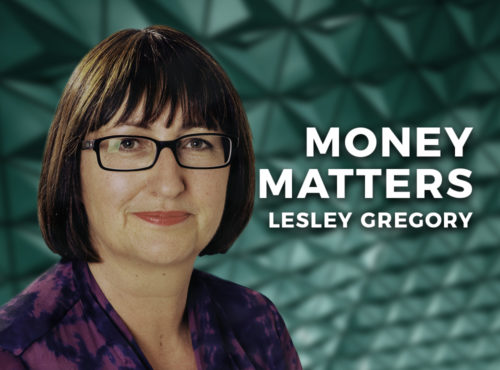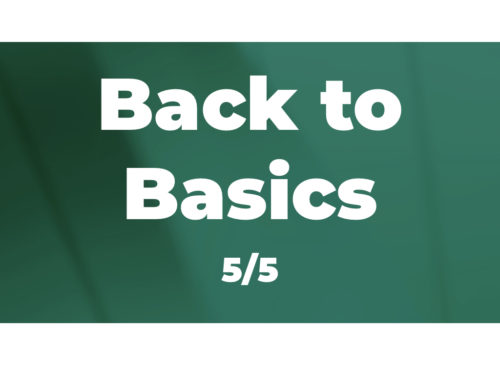
By JONATHAN CLEMENTS
We all do things that make us feel good right now, but which aren’t so good for us over the long haul. Yes, even me. Yes, even you.
Some of this behaviour stems from hardwired instincts passed down to us from our hunter-gatherer ancestors, like our tendency to consume whenever we can and to focus too much on today, while giving short shrift to tomorrow. Other damaging behaviour is the result of habits we’ve developed, often learned from our parents, that we’re now trying to unlearn.
Fighting our instincts and breaking these bad habits is tough. We could try summoning the necessary willpower. But that can be mentally exhausting. It may even backfire, when we decide the effort just expended deserves a reward—and, the next thing we know, we’re in the drive-through at McDonald’s.
Similarly, knowledge isn’t power. We all know we should exercise regularly, eat more fruits and vegetables, and save 10% to 15% of income. But knowing better doesn’t mean we’ll behave better.
So how do we change our habits and keep our worst instincts at bay? Consider three steps.
Step No. 1: know yourself.
What causes you to spend too much, eat too much or drink excessively? Do these things tend to happen at a particular time of day, or when you’re with certain people, or when you’re at certain places, or if you’ve had a taxing day?
For instance, you might eat too much or eat unhealthily when you go to certain restaurants or if you’ve had a rough time at work. You might drink too much when you’re with certain friends or on Friday evenings. You might shop to feel better if you’re despondent. You might trade more when you have CNBC turned on.
Psychologists have identified five key personality traits: agreeableness, conscientiousness, extraversion, neuroticism and openness. Those who display a strong conscientious streak tend to have good financial and other habits. By contrast, those given to neuroticism—the tendency to respond negatively to events—often have a harder time maintaining good habits. If you’re in the latter camp, you’ll likely find it especially difficult to avoid, say, going on a shopping spree after you’ve had a tough day.
What to do? That brings us to the second step.
Step No. 2: Make it harder to engage in damaging behaviour.
Get the potato chips out of the house. Have your regular savings automatically deducted from your salary and bank account. Limit the number of times you go to the shopping mall each month. Don’t bookmark retail websites on your computer. Delete food delivery apps from your phone. Use a debit card rather than a credit card, so the money comes straight out of your checking account. Alternatively, spend cash only.
Anything that slows us down can potentially eradicate bad behaviour, because straying from the straight and narrow might seem like too much effort. In addition, it gives time for the contemplative side of our brain to wrestle with the instinctual side, and we might decide we don’t really need another pair of shoes.
It’s also harder to stray if we’ve told others about the changes we’re trying to make. Want to lose ten pounds or go to the gym three times a week? You might find an “accountability partner” — a friend or family member to whom you confide your goals. In addition, you might look for somebody — perhaps the same person — who also wants to lose weight or exercise more, so you have a companion on your self-improvement journey.
Even as you make it harder to engage in bad behaviour, you might make it easier to behave well, by using a strategy called “habit stacking”. Find something you do regularly, and then add on or incorporate the desired good behaviour. Do you leave the office every lunchtime to buy a sandwich? Find a place that’s 10 minutes’ walk farther away, so you get some exercise at the same time.
With any luck, by making it harder to stray and knowing what’s likely to trigger bad behaviour, you can steer yourself onto the right track.
Step No. 3: Keep this good behaviour going until it becomes second nature.
Have you heard that it takes 21 days to change your habits? Unfortunately, that notion — which has gained widespread currency and is often asserted as fact — is, in truth, just a distorted account of one doctor’s observation. A subsequent academic study found that forming new habits can take anywhere from 18 to 254 days.
The key is to find some way to keep ourselves on the right track for that long. A key ingredient: positive feedback. When our friends tell us that we look like we’re in great shape or they notice we’ve lost weight, we’re encouraged to continue exercising and losing additional pounds.
Similarly, signs of financial progress can encourage us to keep going. I wouldn’t focus on your portfolio’s value, because a bad market could leave you discouraged and perhaps even unnerved. Instead, I’d focus on the dollar amount you save and see if you can increase that sum each month. Similarly, you might track your monthly credit card bills and strive to charge less than the month before.
If you have a mortgage, you might also add a little to your monthly loan payment, and then watch as both the loan balance and the amount of interest you pay go down. I used to love watching my mortgage balance shrink each month — and that encouraged me to make even larger extra-principal payments.
JONATHAN CLEMENTS is a veteran financial journalist. He spent nearly 20 years on the Wall Street Journal and has written several books about investing and personal finance. He is the Founder and Editor of HumbleDollar.com and Director of Financial Education for Creative Planning in Overland Park, Kansas. You can follow him on Twitter @ClementsMoney.
Jonathan is a regular contributor to TEBI. Here are some of his other recent articles:
The case for global diversification is as strong as ever
What’s your excuse for not saving more?
Reflections on all-time market highs
What I learned from five crashes









